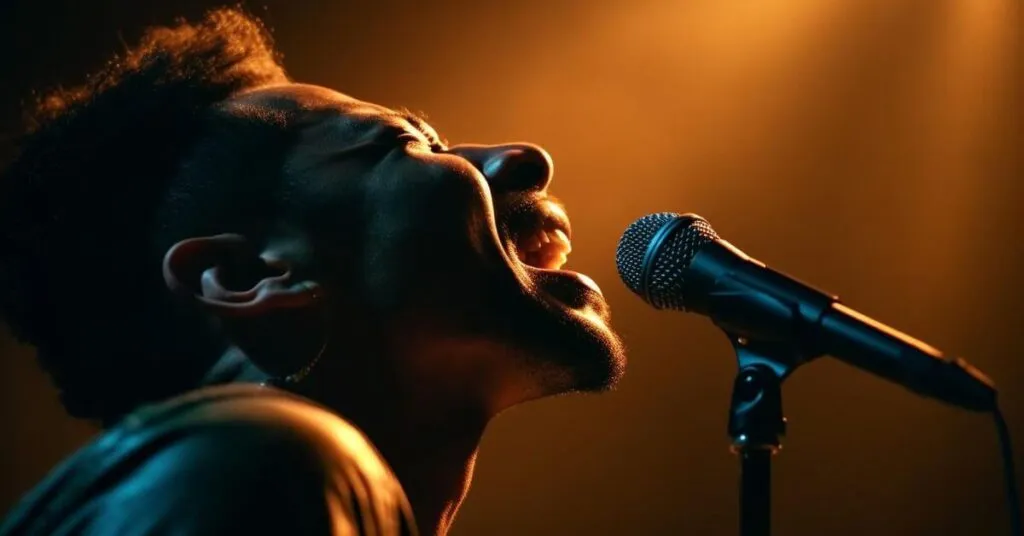Can Musicians be Replaced by Artificial Intelligence (AI)? – AI has made significant strides in recent years, profoundly impacting diverse sectors, including the music industry. With the emergence of machine learning algorithms capable of learning music’s sounds, patterns, and lyrical styles, the generation of novel song versions has become possible.
Nonetheless, as artificial intelligence (AI) continues to evolve, concerns about its potential to replace human musicians are mounting. But can it? This article delves into the prospect of AI in music, ultimately answering whether AI can completely replace musicians, especially timeless Canadian acts.
Table of Contents
Role of AI in Music
AI in music has come a long way, from basic algorithms generating simple melodies to sophisticated systems that compose, produce, and even perform music.
AI models like OpenAI’s MuseNet and Jukedeck have showcased impressive abilities to create original compositions in various genres and styles. Here are the current capabilities of AI in the music industry;
Beat Creation
AI algorithms can analyze vast databases of existing music to learn patterns and generate unique beats. AI can create compelling and diverse beats by studying rhythm structures, drum patterns, and arrangements in different genres.
This technology has been embraced by music producers and artists who seek innovative and fresh rhythmic elements for their compositions.
Songwriting
AI has demonstrated impressive capabilities in generating lyrics and composing songs. AI systems can analyze extensive song databases and learn rhyme, meter, and lyrical content patterns using natural language processing techniques and machine learning models.
They can generate lyrics that follow specific themes, styles or even mimic the writing style of particular artists. However, the depth of emotional storytelling and personal experiences that human songwriters bring to their craft remains a unique and essential aspect of the creative process.
Melody Generation
AI algorithms have shown remarkable proficiency in generating melodies. AI can identify patterns, harmonic progressions, and melodic contours to create original and aesthetically pleasing tunes by analyzing melodies from existing compositions.
These AI-generated melodies can serve as starting points or sources of inspiration for musicians, sparking their creative ideas. However, while AI excels in creating technically proficient and aesthetically pleasing compositions, it needs more subjective and emotional depth human musicians bring to their craft.
Music is a Human Art Form
Music is a profoundly human art form that evokes emotions, tells stories, and expresses the intricacies of the human experience. Musicians possess an inherent ability to infuse their work with personal interpretation, passion, and creativity.
They bring a unique perspective, influenced by their culture, experiences, and emotions, which AI cannot replicate. The spontaneity, improvisation, and intuitive decisions musicians make during performances further showcase their irreplaceable role.
The following are the human elements AI cannot replicate;
Emotional Connection
The emotional connection forged between performers and audiences lies at the heart of music. Human musicians can convey emotions, tell captivating stories, and evoke profound feelings through their performances.
This intricate process presents a formidable challenge for artificial intelligence (AI) to replicate authentically. The depth and authenticity of human expression in music are often attributed to intangible qualities such as personal experiences, creativity, and the ability to infuse personal interpretations into their craft.
Spontaneity and Improvisation
Live music performances are renowned for their spontaneity and improvisation, wherein musicians tap into the moment’s energy, crafting extraordinary and unrepeatable experiences.
While artificial intelligence (AI) can simulate improvisation, it falls short in the intuitive decision-making and creative adaptability human musicians effortlessly exhibit on stage.
The human element infuses performances with a distinctive touch. It allows musicians to seamlessly navigate unforeseen circumstances and captivate audiences with their imaginative and responsive artistry.
Non-Musical Elements
Music performances encompass far more than the mere act of playing notes. Visual cues, stage presence, audience interaction, and the overall charisma of musicians play vital roles in creating captivating live shows.
These non-musical elements add depth and authenticity to performances, and their convincing replication remains a significant challenge for artificial intelligence (AI).
Artistic Interpretation
Musicians bring their interpretations and unique expressions to their performances. They infuse their playing with personal experiences, cultural influences, and emotions, which adds depth and authenticity to their art.
Although proficient in replicating styles, AI lacks the subjective and creative interpretation that humans inherently possess.
The Future Landscape
Although AI-generated music has received significant attention and praise, it is crucial to recognize that the final assessment of artistic worth lies in the hands of the listeners.
The emotional connection between musicians and their audience remains vital to the music experience. Human musicians can forge deep and empathetic connections, bridging the abstract and tangible divide.
This distinctive bond ensures that musicians will remain indispensable in the music world. Their irreplaceable presence guarantees the preservation of a profound and meaningful musical landscape.
It is worth noting that many musicians and artists are embracing AI as a tool rather than viewing it as a replacement. They use AI-generated beats, melodies, and songwriting suggestions as a source of inspiration and a springboard for their creativity.
AI can provide many possibilities and help artists explore new musical territories, but it cannot replace musicians. Music created solely by AI lacks the authenticity and genuine human expression that listeners often seek and connect with.


